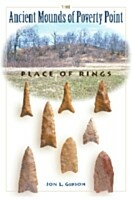Florida's Fragile Wildlife
Conservation and Management
The Fossil Vertebrates of Florida
Democracy After Slavery
Black Publics and Peasant Radicalism in Haiti and Jamaica
An Early Florida Adventure Story
The Fray Andrés de San Miguel Account
Indians of the Greater Southeast
Historical Archaeology and Ethnohistory
Cypress Swamps
"Just what the environmental doctor ordered—an objective and cold-blooded appraisal of the value of a natural living resource. Throughout its 472 pages an irrefutable case is built on the role and importance of the cypress swamps of the southeastern United States. This importance is shown to extend far beyond a consideration of the swamps as discrete ecological entities in themselves but to their influence on the surrounding landscapes, biota, and human populations."—<i>The Environmentalist</i>
From the preface:
"Cypress swamps are only one type of forested wetland but they span a full range of diversity and productivity, which depend primarily on levels of nutrient and water inflows. Our objectives were to understand not only cypress swamps but also the regional system that includes both the human economy and wetlands. Our intent was to explore the concept that a symbiosis between humanity and nature would maximize the vitality of both the economy and the wetlands."
<i>Cypress Swamps</i> is the first study of its kind to analyze a common southeastern ecosystem by integrating laboratory and field study with computer modeling to establish a basis for further analyses of perturbations in wetlands. Its three sections deal with the general characteristics of cypress swamps, the impact of recycling secondarily treated wastewater into cypress-dominated ecosystems, and swamps in a larger environmental context, all in an effort to define their usefulness to human systems.



